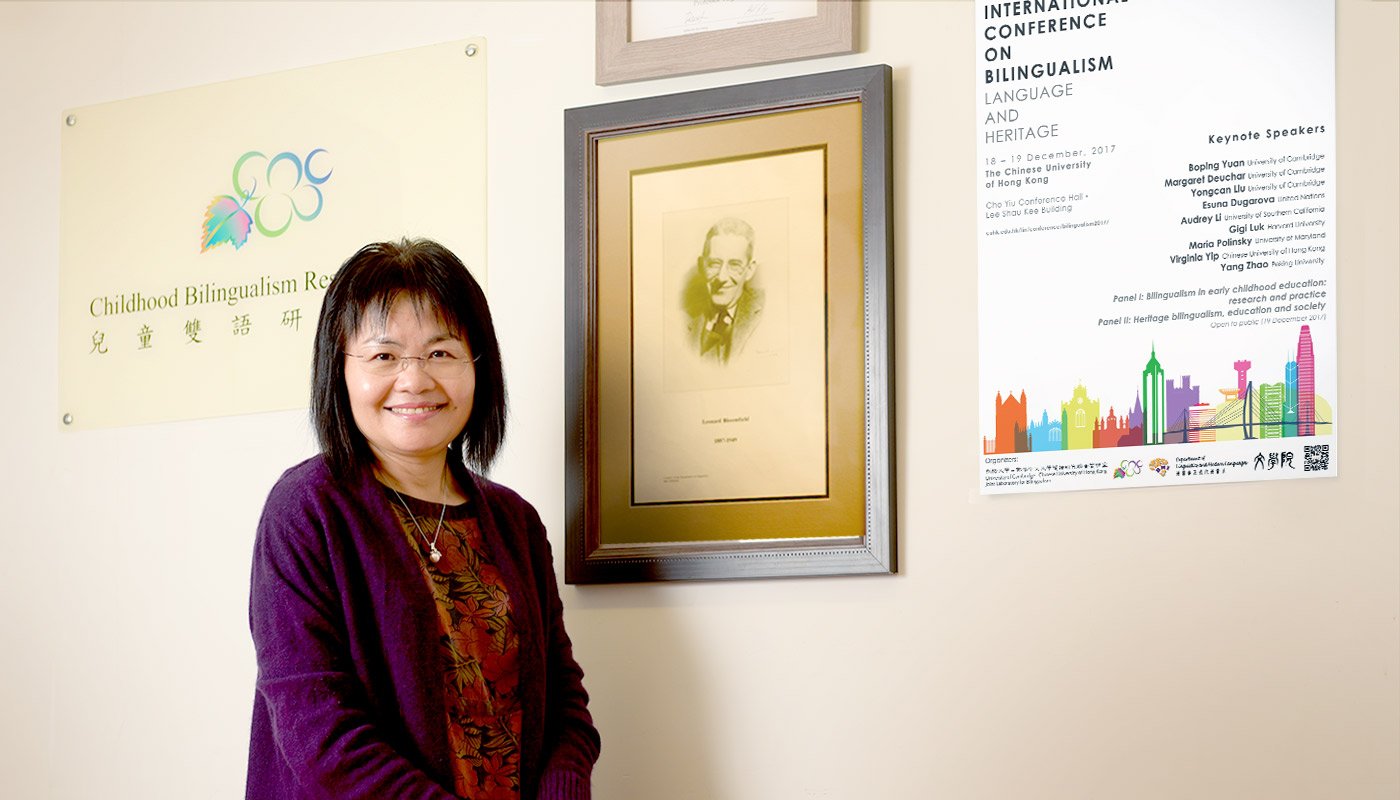
The Chinese University of Hong Kong (CUHK) announces the launch of the world’s first Child Heritage Chinese Language Corpus. In many overseas Chinese immigrant families, children are exposed to Chinese at the home and English in the larger community. The transmission of language is vital to the preservation of their heritage as Chinese is a marker of the speakers’ identity and key to the treasure troves of Chinese culture.
First Longitudinal Corpus on Trilingual Development of Chinese in the World
In a study of a number of American-born Chinese children conducted by the Childhood Bilingualism Research Centre (CBRC) at CUHK, their development of English and Chinese in the first few years of their lives was documented in a new multi-media Child Heritage Child Language Corpus which will be deposited in the Child Language Data Exchange System (CHILDES) archive based in Carnegie Mellon University. Prof. Virginia Yip, Director of CBRC and Co-Director of the University of Cambridge-CUHK Joint Laboratory for Bilingualism said, “This study breaks new ground in being the world’s first longitudinal study of Chinese heritage children in the US, with detailed documentation of the parent-child interactions over a significant period of time. We have been able to track the bilingual or trilingual development of the three children for more than two years. Together with CBRC’s previous corpora documenting bilingual development of Hong Kong children as well as monolingual development of Mandarin, this reinforces our world-leading role in child language corpus construction, making the greatest number of children’s audiovisual data and transcripts accessible to the international research community.”
In its initial release, the multi-media corpus consists of three children’s longitudinal data covering the age range of one year seven months to four years eleven months, documenting the development of the children from one-word to multi-word stage over a period of 24 months to 36 months. The children received regular Mandarin input at home from birth and English to different degrees. In one family, Cantonese as well as Mandarin and English are also spoken in the home where the child has successfully developed trilingualism. The developmental stages were reached at approximately the same age as in monolingual children, although the child may not reach the same stage in each language at exactly the same time. The languages produced by the children show features not found in monolingual children which suggests that they are not two monolinguals in one individual.
According to Prof. Ziyin Mai, Research Assistant Professor, Brain and Mind Institute of CUHK, it is found that when Chinese input is limited and reduced in an English-speaking community, the development of Chinese in young children faces additional challenges. The findings show that the children are able to develop bilingual and trilingual proficiency on a par with monolingual children, given regular and rich input from parents in the home setting, despite the lack of strong support for Chinese in the larger community which is English-dominant. The ability to speak Chinese does not come at the cost of speaking English or vice versa.
An innovative feature of the study is the combination of traditional home-recording and online video calls that capture both parent-child interaction in Chinese and adult-child interaction in the societal dominant language, in this case, English, which aligns with the one-context-one-language strategy. The study benefits from web-based speech data recording which crosses borders and supplements traditional home-bound recording normally conducted by home visits.
Establishment of the University of Cambridge-CUHK Joint Laboratory for Bilingualism
The study of how children in overseas communities acquire and maintain Chinese is an important strand of research in the newly established University of Cambridge-Chinese University of Hong Kong Joint Laboratory for Bilingualism (JLB) which will be launched at the International Conference on Bilingualism: Language and Heritage to be held on 18-19 December 2017 at CUHK. The Joint Laboratory will provide an international platform for research in bilingualism across the lifespan from infancy and early childhood to adulthood, across diverse contexts, and promote the linguistic and cognitive benefits of bilingualism and multilingualism.
For further information, please click here. To learn more about Prof. Yip’s work, please click here.
